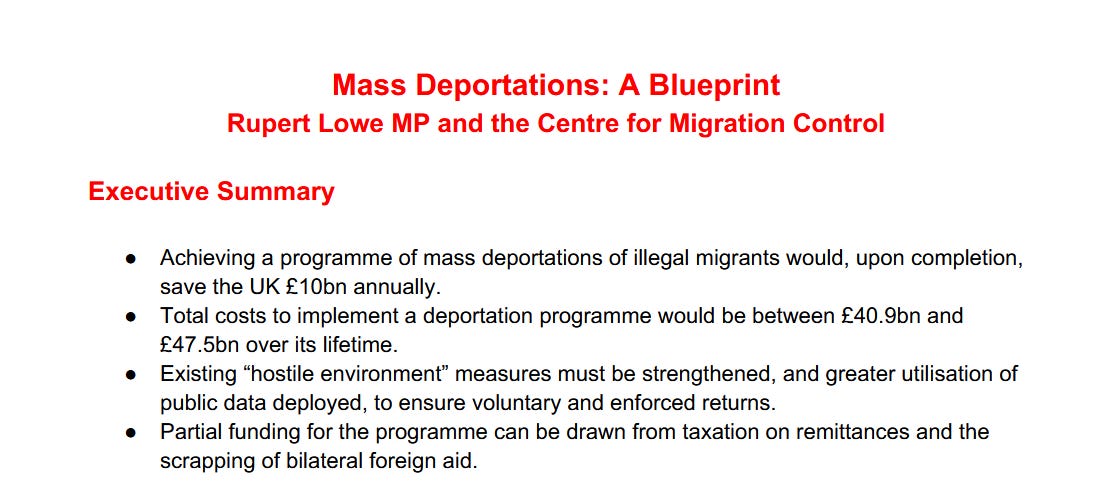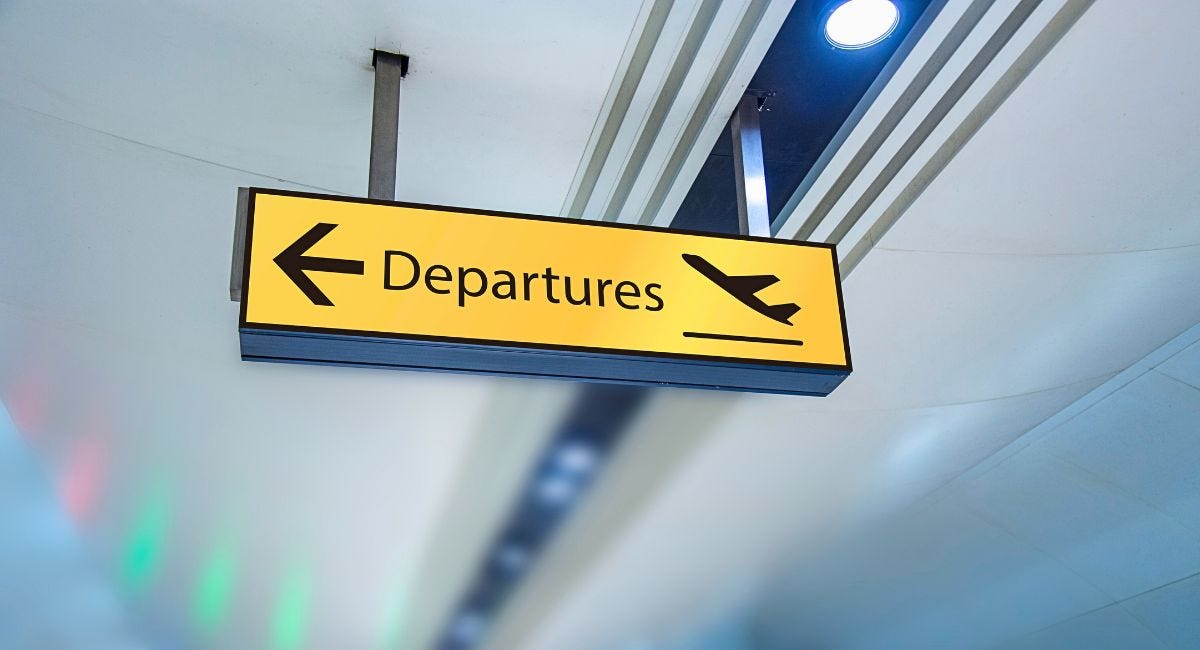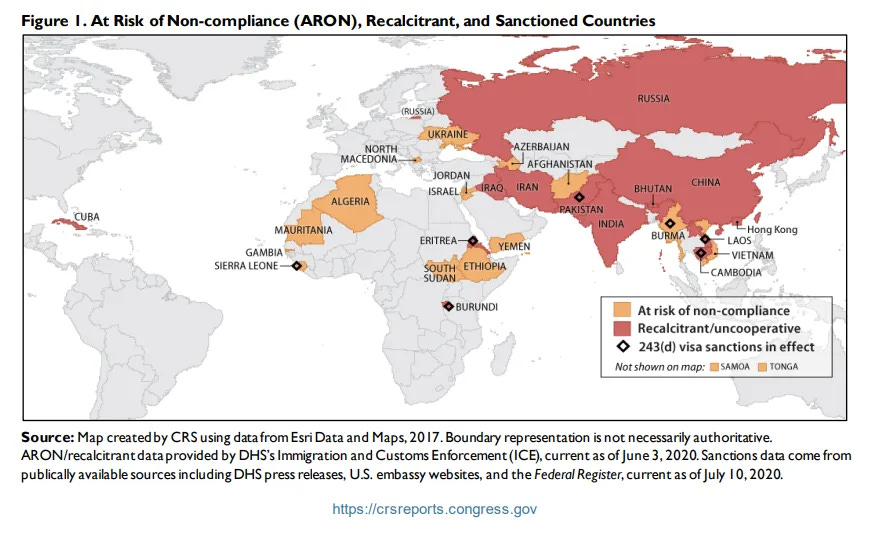Former Reform UK party member and still-sitting member of parliament Rupert Lowe has released a policy document titled “Mass Deportations: A Blueprint” alongside the Center for Migration Control. This is a significant move on the part of a parliamentarian who was, at least in my view and those of others, removed from Reform UK because he takes subjects such as mass immigration and the potential of remigration seriously unlike party leader Nigel Farage. Lowe recognises that even legal immigrant populations do not properly integrate into the fabric of our British way of life and he has called numerous times for those populations to be incentivised to leave. There has even been speculation that part of the reason Farage removed Lowe from Reform UK was because he did not want Lowe using the term “remigration” on stage.

Unlike Reform UK and its seeming aversion to creating detailed policy proposals, Rupert Lowe’s policy document is a comprehensive 11 page review of the current situation as regards illegal and fraudulent “legal” immigration into the United Kingdom and includes a proposal to deport at least 400,000 people from the country in the space of four years. This is a fantastic initial step in the very necessary process of reversing decades of unwanted demographic change that was entirely undemocratic.
As a side note: I have seen many people on X (formerly Twitter) complaining about how this plan does not tackle legal immigrants and non-natives. Rupert Lowe has written numerous posts on the fact that we need to talk about the failure of immigrant descended communities to integrate and specifically called them out for their treatment of White (I would say native) Britons. He has called for legal immigrants to be sent home and for the goal to be a net-outflow of immigrants for the foreseeable future through visa cancellations and expiration.
These are all positions I have taken in my own work on the immigration situation here in Britain and I believe Rupert Lowe and his team will get around to writing papers on these subjects as well.
In the meantime I want to take a look at Mr. Lowe’s blueprint for the mass deportation of illegal aliens.
The policy document starts by outlining the problem of there being at least 1.2 million illegal migrants in the United Kingdom (a figure I estimate to be at or above 1.35 million in my own work). The early pages also address the drastic decline in enforced returns (deportations) over the previous two decades as well as the near 20% drop in resource funding for operations related to deportations between 2014 and 2021 – a budgetary decline of some £96 million. This section on immigration enforcement is also where we find the first two policy proposals under the broad header of “Identifying and Detaining” illegal migrants:
- An increase in enforcement related funding from £660 million (the 2024 budget) to some £6.6 billion annually for immigration enforcement.
- An increase from the meager 5,382 immigration enforcement related staff to a staff of 50,000.
The paper moves onto the overall framework for enabling mass deportations. According to the Lowe’s policy the UK must: leave the European Court of Human Rights and the UN Refugee Convention, scrap the Human Rights Act of 1998, end the use of immigration tribunals, and put more force into the Illegal Migration Act already ‘on the books’ here in Britain.
From here Lowe examines the issue of public reporting, or members of the public and community reporting immigration and commodity abuse to the Home Office. According to Lowe’s research incidents of reporting have increased by 33% since 2019 and this is despite almost no effort on the part of the government to publicise the existence of the reporting hotline. This is also where Rupert Lowe proposes another policy:
Just as the government offers compensation to people who report illegal tax practices the government should offer compensation to Britons who ‘tip-off’ immigration enforcement to illegal migrants working in British businesses.
This police comes just before the related page-length section titled “Reheating the ‘Hostile Environment’”. In this section Lowe and his colleagues outline how between 2014 and 2018 the Home Office reported 448,800 people suspected of not having rights to live in the UK to other government departments who were providing those individuals with service such as driving licences or access to the public purse (the British welfare state). A later review found that only 63,786 of these individuals had some kind of sanction or action taken against them. The paper outlines how simply revoking a driving licence is not enough, though. Instead Lowe calls for several new policies:
- All data on potential illegal residents in the UK must be shared with local councils, local police, and the NHS as well as other government departments.
- Those entities must be obligated to share any data they have on suspected illegal residents with the Home Office so immigration enforcement officers can better facilitate deportation.
- Landlords, businesses, and banks must be required to share information with the Home Office when they perform ‘right to work’ and ‘right to rent’ checks on foreign nationals.
The paper then details how in 2018 the Home Office ceased pressuring the NHS to share non-medical information on patients (names and addresses) when those patients were believed to be in violation of UK immigration law. Lowe calls for these measures to be reinstated and enshrined by parliament.
Next there is one of the greatest drivers of immigration into the United Kingdom both legal and illegal: businesses. Currently businesses in Britain that are caught in breach of immigration law are fined £45,000 for an initial violation and £60,000 for all subsequent violations. Lowe’s policy paper calls for:
- These fines to be quadrupled.
- Any business which is found in violation after a third infringement should be referred for liquidation (dissolution).
- A “nudge letter” sent to all business categories found with a higher rate of illegal employment that directs them toward the Employer Checking Service and informs them of the above policy changes.
- The redirection of £1.5 billion from open-borders charities to private sector entities that help businesses and organisations identify and report illegal workers.
- All public sector entities – which employ 6.14 million people in Britain—from national to regional and local must produce an audit of their own employees.
Finally in the ‘Identifying and Detaining’ section of the paper is the issue of housing. The authors point out that landlords that house illegal migrant tenants are subject to £10,000 in fines for a first breach of the law and £20,000 for each subsequent violation. The paper calls for a few policy changes:
- A quadrupling of the fines for housing illegal migrant tenants.
- Requiring landlords to provide the details of any person who fails a ‘right to rent’ check and the introduction of a service to report these individuals.
- Requiring councils to contact all landlords and remind them of their obligations to check the ‘right to rent’ status of applicants.
The blueprint for mass deportations them moves onto a dedicated ‘removals’ section which calls for:
- An increase from 2,200 detention beds to 15,000 detention beds allowing for the enforced returns of 195,000 individuals per year.
- A strengthening of the 2023 Illegal Migration Act to prevent immigration judges from overreaching and allowing more than half of those in detention to be released/bailed into the country.
- A minimum goal of 150,000 enforced returns each year.
All of these policy prescriptions are fantastic and in line with my own proposals and others here at White Papers. It would result in the near-total removal of the illegal migrant population from the UK within 8 years, assuming that all removals happened under this enforcement focused framework.
I do feel compelled to offer a thought, though. The British state is currently paying for 41,000 beds for so-called refugees, a figure that includes some 5,000 empty beds for expected arrivals. If the British state can fund upwards of 40,000 beds for illegal and irregular migrant arrivals it can certainly fund just as many for the detention and deportation of illegal migrants, ideally by shifting the funds away from reception. Funds that top £4 billion each year.
The paper then tackles the issue of ”voluntary returns” for illegal migrants. The paper argues that be creating a hostile environment where illegals are unable to procure work or gain access to government services it will motivate those illegals to depart Britain. Lowe and his colleagues estimate, using government data, that if enforced returns are supercharged to 150,000 deportations per year the number of voluntary returns will increase to 300,000 each year. This would allow for a complete reduction in the illegal migrant population within three to four years. The paper calls for:
- The funding to facilitate voluntary returns to be redirected from Britain”s foreign aid budget.
- The implementation of a “self-deportation” app along the lines of the CBP Home app currently being implemented in the United States.
- Reinstating exit statistic collection so the government can collect data on the number of “independent returns” not facilitated by the British state.
The authors also call for pressure to be put on the countries of origin for the largest categories of illegal overstayers: India, Pakistan, Nigeria, Bangladesh, and Chinese. The paper states:
“Pressure on countries of origin – through remittance taxation, visa restrictions, trade sanctions, and the withholding of foreign aid – is an important part of ensuring mass deportations. Economic discomfort increases the likelihood that a government will encourage its own citizens to leave the UK, as well as negating some of the reasons for individuals to stay in the UK illegally (such as the ability to easily send money back home).”
These policies are all in line with White Papers own proposals on forcing and pressuring “unwilling states” into accepting the return of their own citizens and kin.
Lowe and his co-authors also propose that all remittances to countries that provide such large numbers of illegal aliens be taxed at 25% in order to fund the burden Britain takes on by hosting their citizens. The authors estimate that this tax would collect up to £3 billion each year to be directed toward immigration enforcement and detention facilities and raise a total of £10 billion over a five year time span. This policy would be combined with severe restrictions on foreign aid to migrant origin countries unless they:
- Agree to take back their citizens.
- Take measures to encourage their citizens to return.
The next policy proposal, and the one where I find my only serious piece of disagreement with this paper, is on the matter of visas. Lowe and his co-authors suggest that until countries agree to take their citizens back the number of visitor visas issued to their citizens be capped at 50% of the current numbers (over 1.2 million visas in 2024). While I appreciate the effort Lowe and his team and putting forward in being creative I find this idea to be too little. The Chinese and Nigerian governments are unlikely to feel the sting if mere tourists are unable to take their London vacations. These wealthy Chinese and Nigerians will simply go to Paris, Berlin, or Los Angeles instead.
Rather, the United Kingdom should cap the number of work, study, and residency visas for citizens of these countries at extremely low numbers (perhaps a few hundred each) and in such a way that visa holders already present in the UK count toward the total. This means that high-earning immigrants in the UK from China or Nigeria will be effected and likely sent home. This will put far more political pressure on Beijing and Abuja than targeting tourist visas.
I am going to skip the savings estimates section of the policy paper and state simply that Lowe and his colleagues estimate their policies would save the British taxpayer roughly £10 billion pounds each year.
Now, I think the best conclusion is the one offered in the policy paper itself:
“Ultimately, the most important attribute required to deport all illegal migrants is the political will to do so – a preparedness to pursue new lines of thought, to adjust to the changing profile of the illegal migrants being sought, and an unwavering nerve in the face of backlash. Two thirds of the British public support the removal of all illegal migrants, and it is a policy that is in the national interest. This must be any future government’s lodestar when embarking on this mission.”


